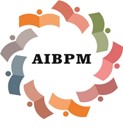Pemberdayakan Kesehatan Masyarakat: Pendekatan Pendidikan Berbasis Religius
DOI:
https://doi.org/10.31940/bp.v10i2.63-70Keywords:
Community Health Empowerment, Religiously, EducationalAbstract
Collaborative efforts among community members, health care professionals, and faith-based institutions can prove valuable in efforts to improve community health. The aim of this research is to increase knowledge about risk factors for heart disease, diabetes, stroke among the Bugis Community Kalimantan population; and to empower community members to take control of their health by modifying living habits through health education programs held within religious communities. This study used data obtained from a pre- and post-health risk assessment survey to assess participants' knowledge of risk factors that cause chronic diseases among the Kalimantan population in underserved Bugis communities. Data obtained from activity log books and health check sessions were used to assess the impact of knowledge gained about lifestyle practices. The results of the educational intervention showed progress, with 24% of participants experiencing a decrease in blood pressure, 18% experiencing a decrease in blood sugar, and 6% experiencing a decrease in weight. As many as 60% of participants reported an increase in exercise, 77% reported changes in eating patterns to be healthier, and 95% of participants reported increased knowledge about risk factors for heart disease, diabetes and stroke. These results emphasize the importance of ongoing health education programs to increase public awareness and knowledge in preventing chronic diseases. The research findings support the need for continued popular development of educational programs especially in religious institutions within the Bugis community.










